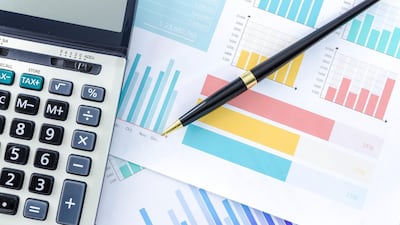I have a company that has been VAT registered since the introduction of the tax in January. In June, I opened a new branch of the company in another emirate but have not yet registered that branch for VAT as the turnover is below Dh375,000. Should I register the branch licence once it reaches the voluntary limit of Dh187,500 or wait until it reaches the mandatory registration limit of Dh375,000? BDC, Fujairah
From a legal perspective, a branch is seen as an extension of the main company. Therefore, branches do not need to be registered separately for VAT as they will automatically fall under the main registration you completed in December 2017 ahead of the introduction of the tax in January. Do not consider the branch revenues and costs as separate from the main business; from a VAT perspective these should all be combined. The turnover of the branch is therefore irrelevant when looking at registration thresholds and you should include all taxable revenues and costs from your branch in the next return for your existing Tax Registration Number. There is no need to report that main company and branch separately.
If you have revenues and costs dating back from June you should include them as soon as possible in your next VAT return. Remember, if you under reported the VAT payable by more than Dh10,000, you must submit a separate voluntary declaration to the Federal Tax Authority. If the amount under reported is below Dh10,000, then you can just report it in the next return.
Finally, any transactions between your main company and the branch will be outside the scope of VAT and will not need to be reported on your return. A company and all its branches with the UAE are considered to be one taxable entity.
_________
Read more:
VAT q&a: I paid on time, but forgot to file my return. Can I avoid late fees?
VAT q&a: 'How do I invoice a client in another currency?'
VAT q&a: What entertainment expenses can my company reclaim VAT on?
VAT q&a: As a start-up not paying VAT, how can I retain my big clients?
_________
I am often asked to raise invoices for my customers in foreign currencies. Due to exchange rate movements between the date the invoice was raised and the date the payment was received and converted back to dirhams, I never get paid the amount I invoiced. Therefore, I am concerned I am paying too much VAT, with the amount I receive in dirhams less than the invoiced amount. Should I reduce the invoice in my accounting system so that it matches the amount I receive? And, in my returns, can I report the VAT I received rather than the amount on the original invoice? FS Dubai
Exchange rates between currencies are continually fluctuating which is why tax regimes have to set out clear guidance rules on how rates should be applied to taxable financial transactions. The dirham is pegged to the US Dollar and although we see some movement in the exchange rates between the two currencies, because of the peg the movements tend not to be significant. Other exchange rates may move more widely and you may see significant differences between the amount invoiced and the amount you eventually receive when you convert the funds to dirhams. Sometimes this movement will work in your favour and sometimes not.
The rules covering the use of exchange rates for VAT transactions is included in the FTA detailed legislation and executive regulations, but they have also since issued a VAT Public Clarification document P004 entitled "Use of Exchange Rates for VAT Purposes". These public clarification documents are easier and shorter to read than the law itself and cover all the main points relating to a particular VAT topic. The one covering exchange rates can be found at www.tax.gov.ae/pdf/use-of-exchange-rates.pdf
When you raise invoices in a currency other than dirhams, the amount of the invoice and therefore VAT is fixed according to the exchange rate published by the Central Bank of the UAE on the day you raise the invoice. The exchange rates on the Central Bank website are updated daily and you must use the latest rate available. Invoices must show the foreign currency amount but also the exchange rate and the dirham amount payable, as well as the VAT in dirhams.
Depending on how the exchange rates have moved, for some invoices you will receive more dirhams than invoiced and on others you will receive less. However, the rates are fixed at the point you raise the invoice, so you are not permitted to go back and change the invoice retrospectively to match it to the amount received. Doing so would be a breach of the legislation and likely results in fines if this were to be discovered during a VAT audit.
Lisa Martin, a chartered accountant with more than 20 years commercial finance experience, is the founder of accounting, auditing and VAT consultancy, The Counting House. Email any VAT queries to pf@thenational.ae

